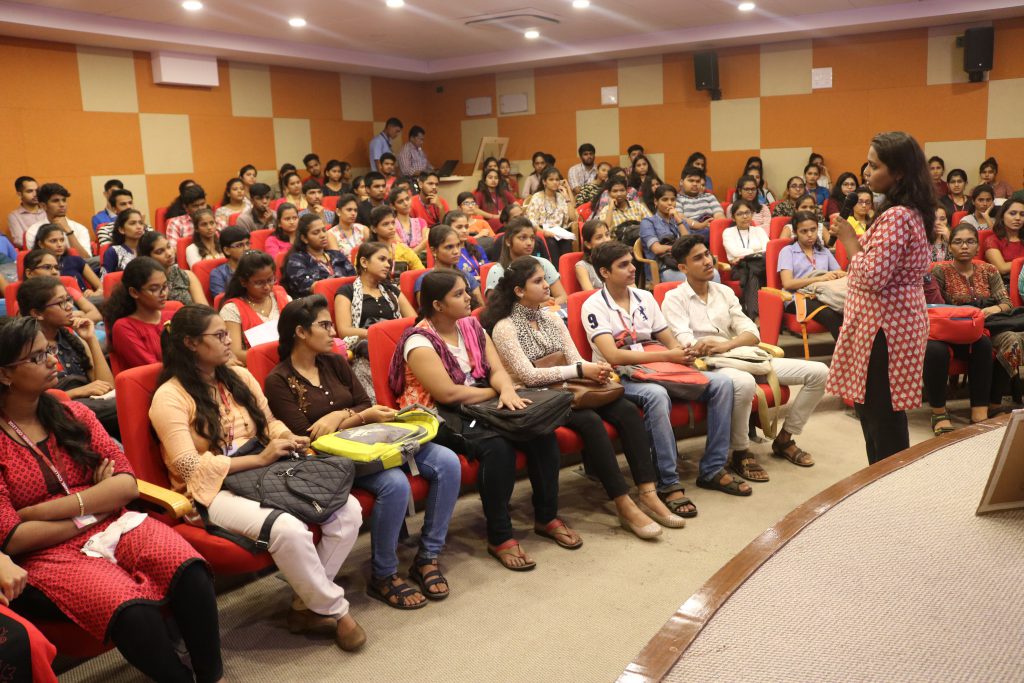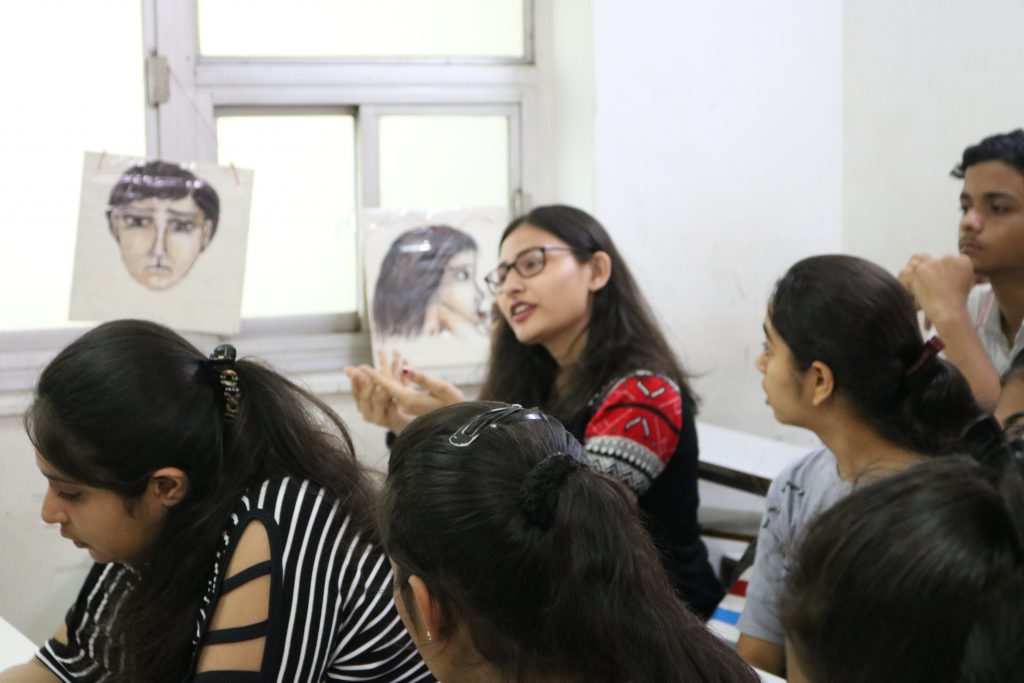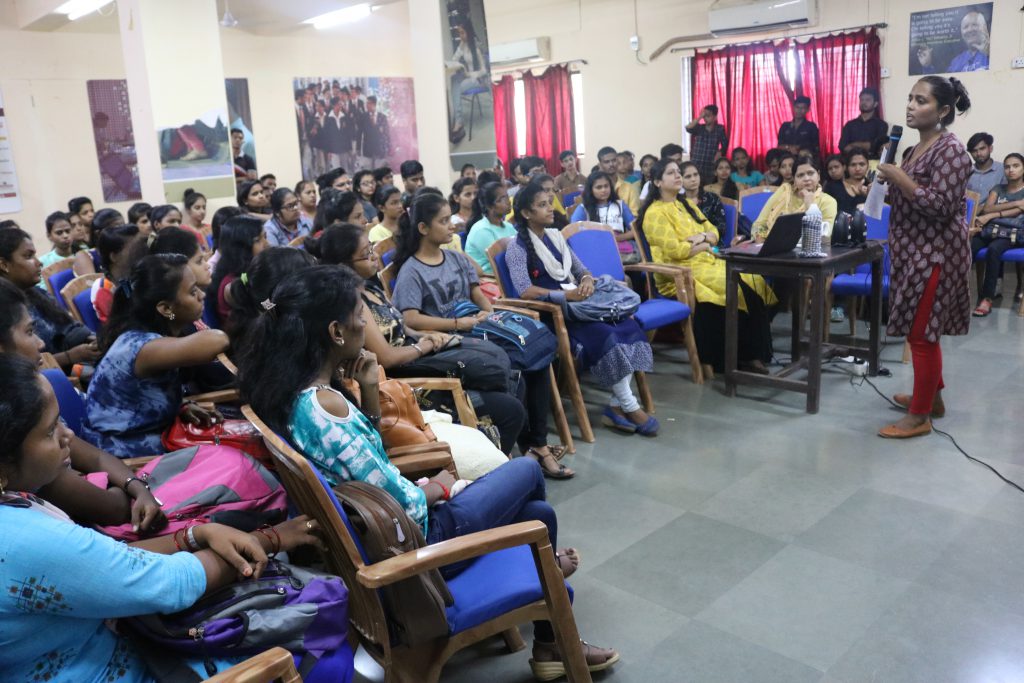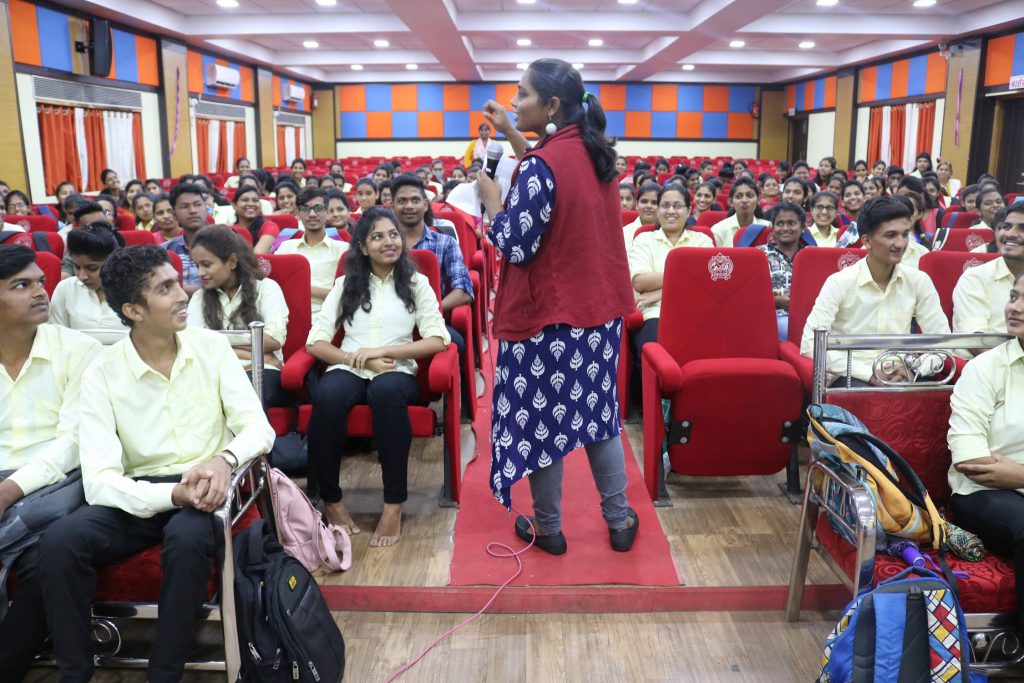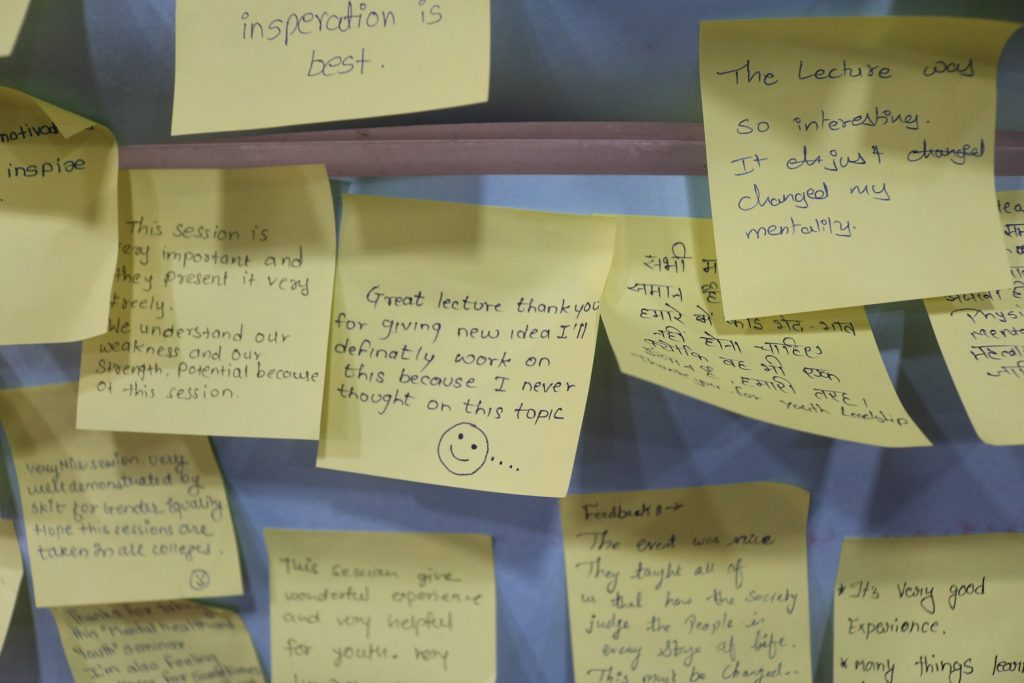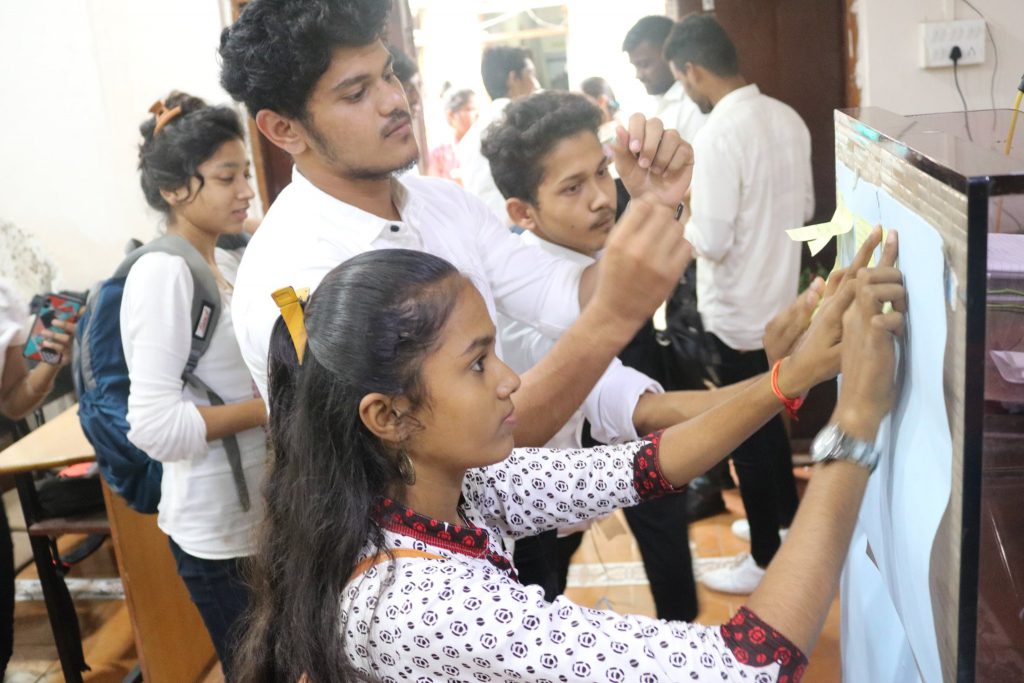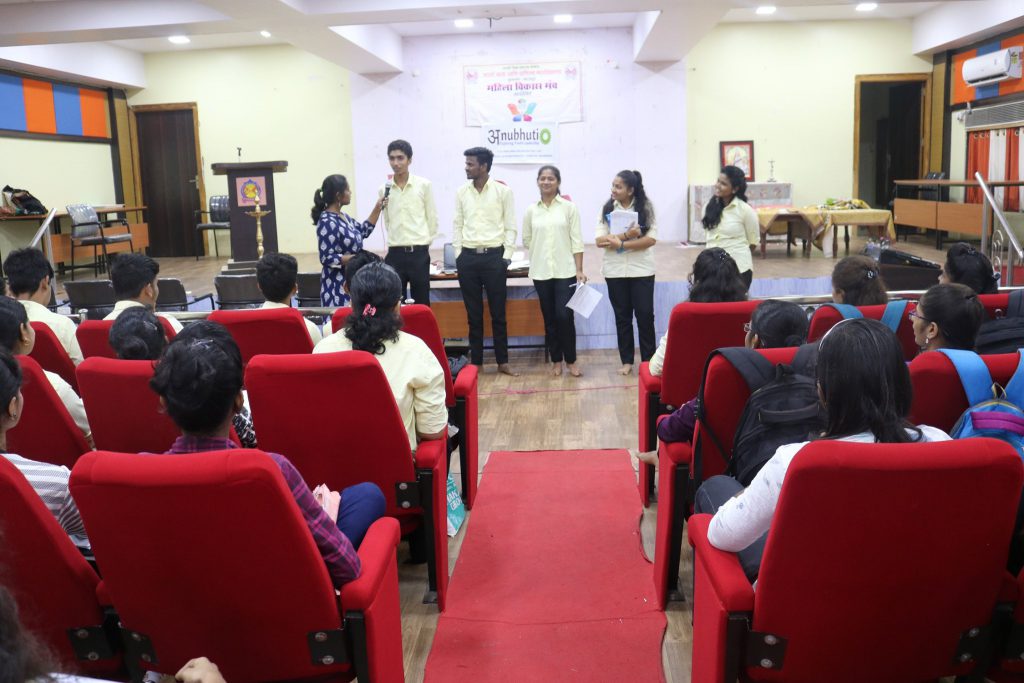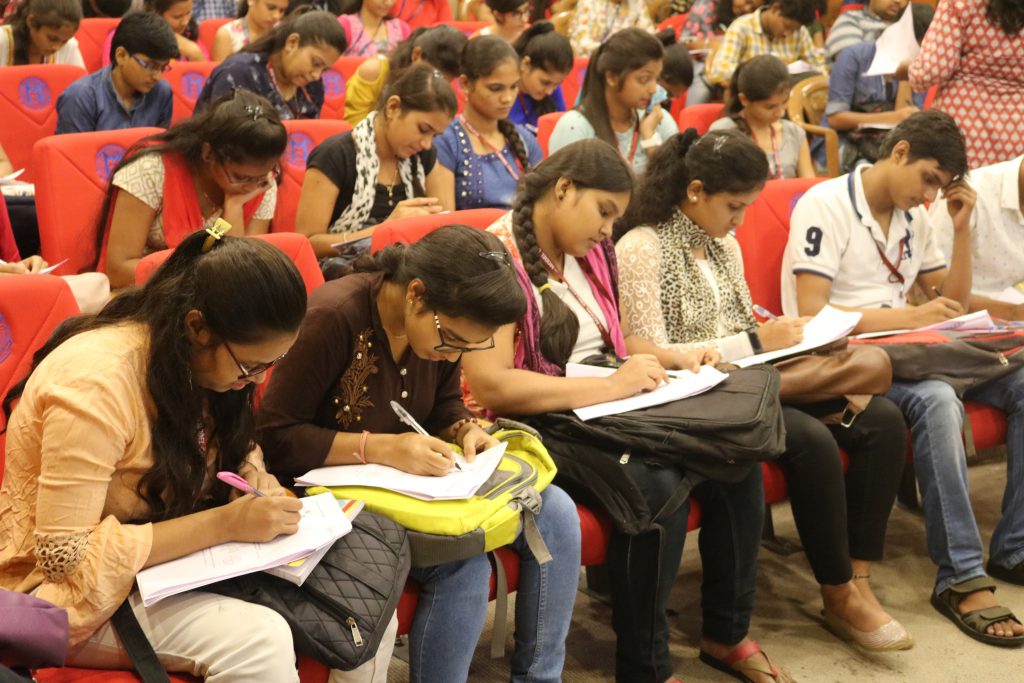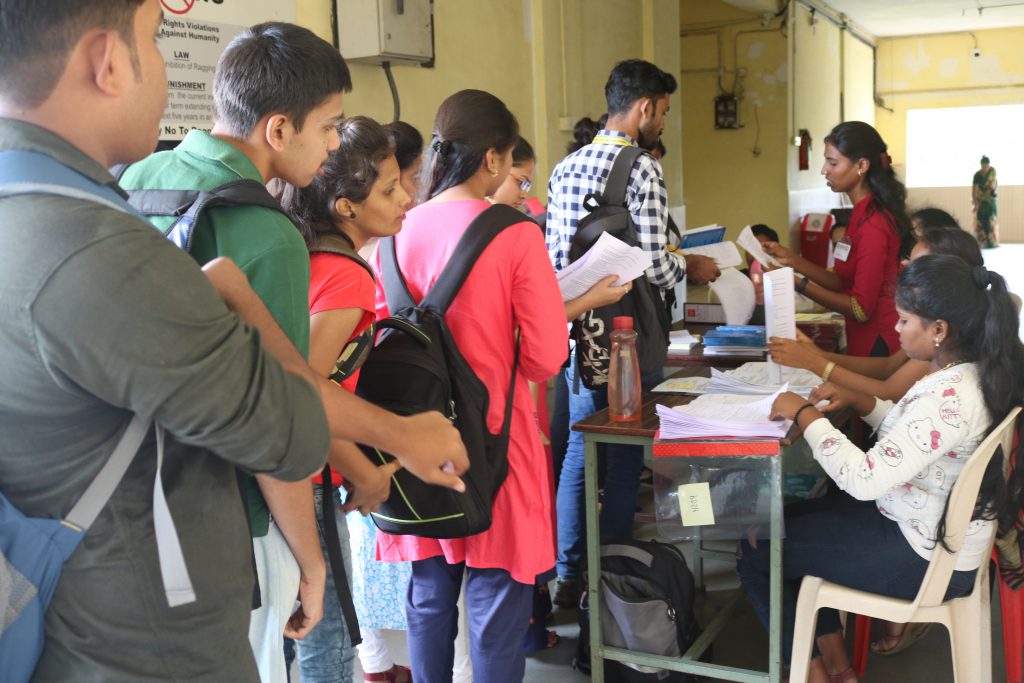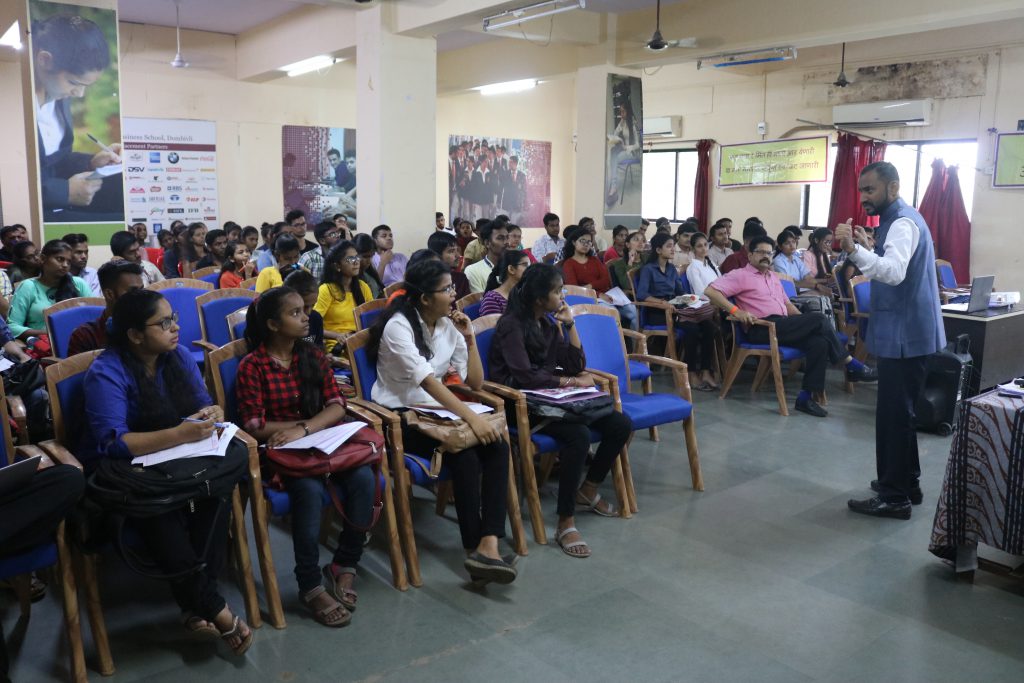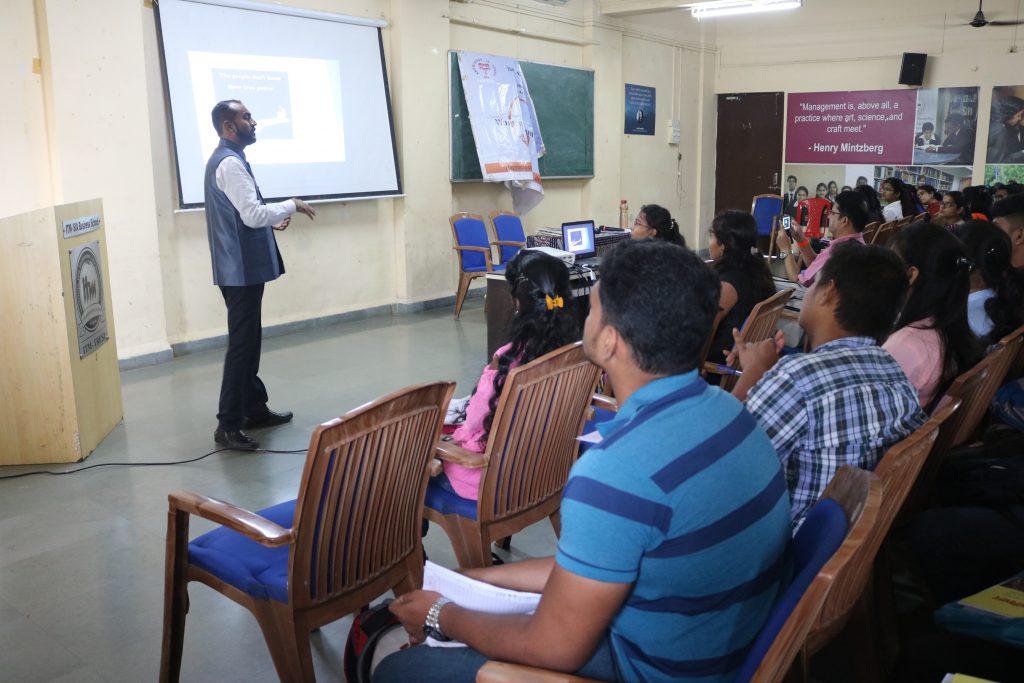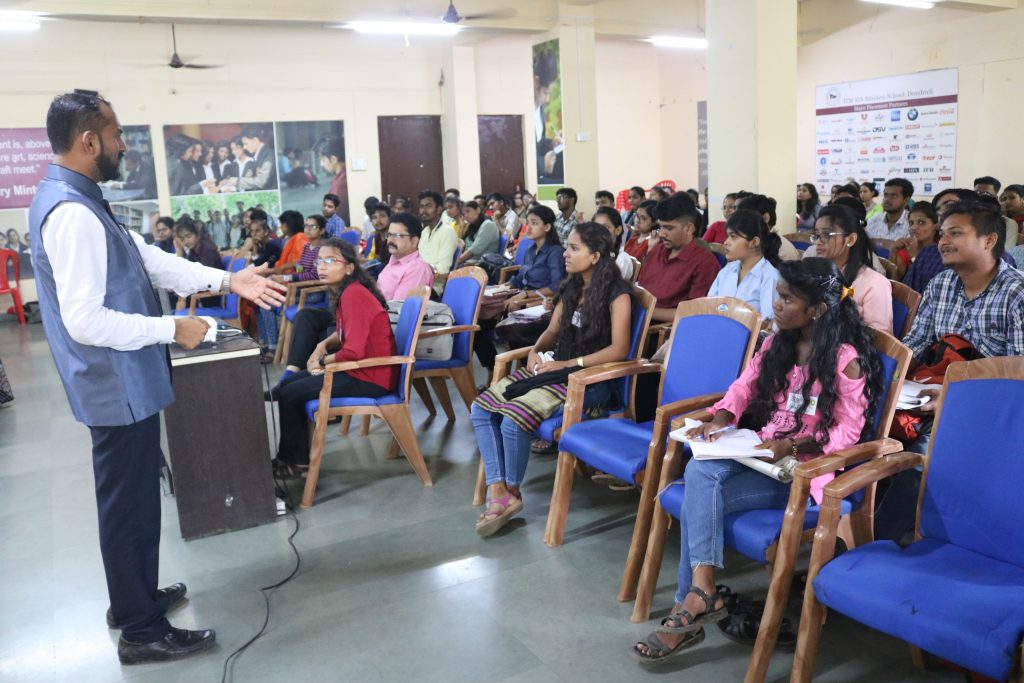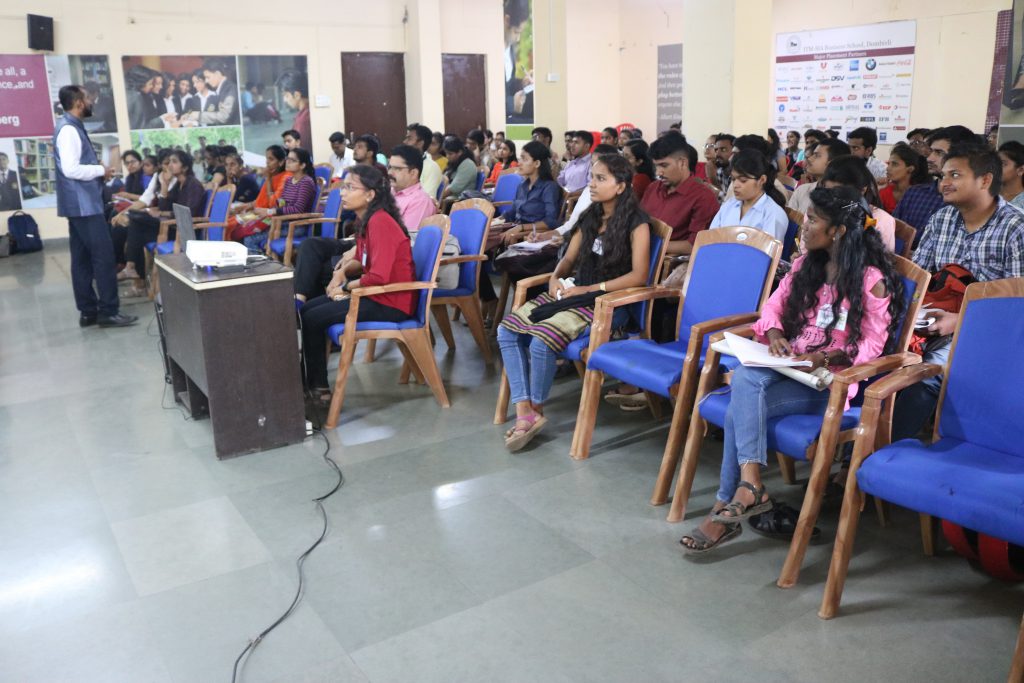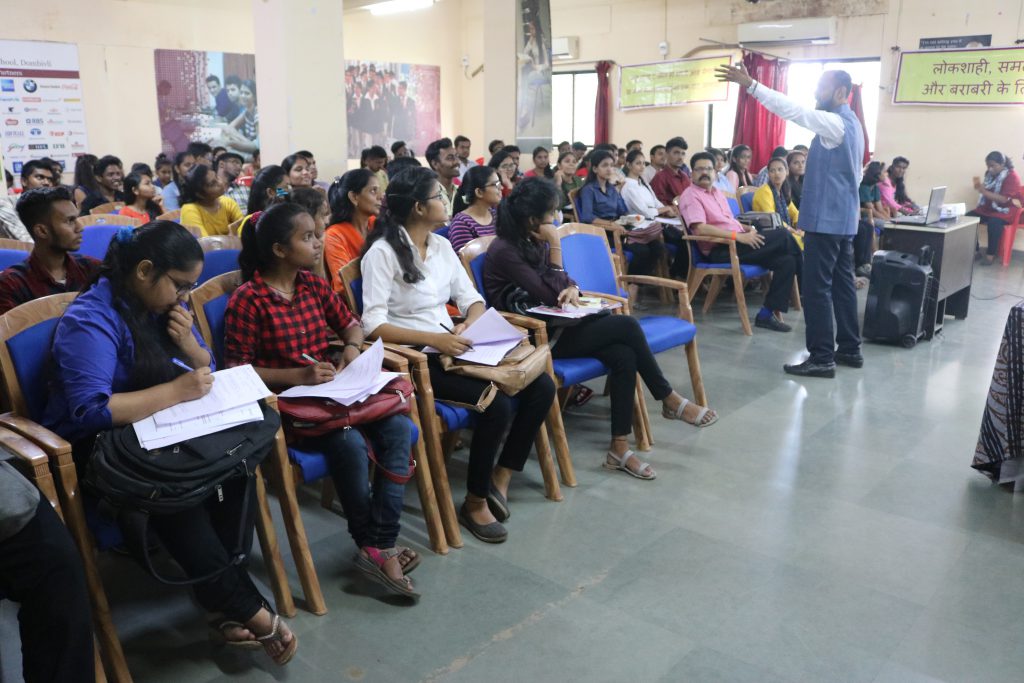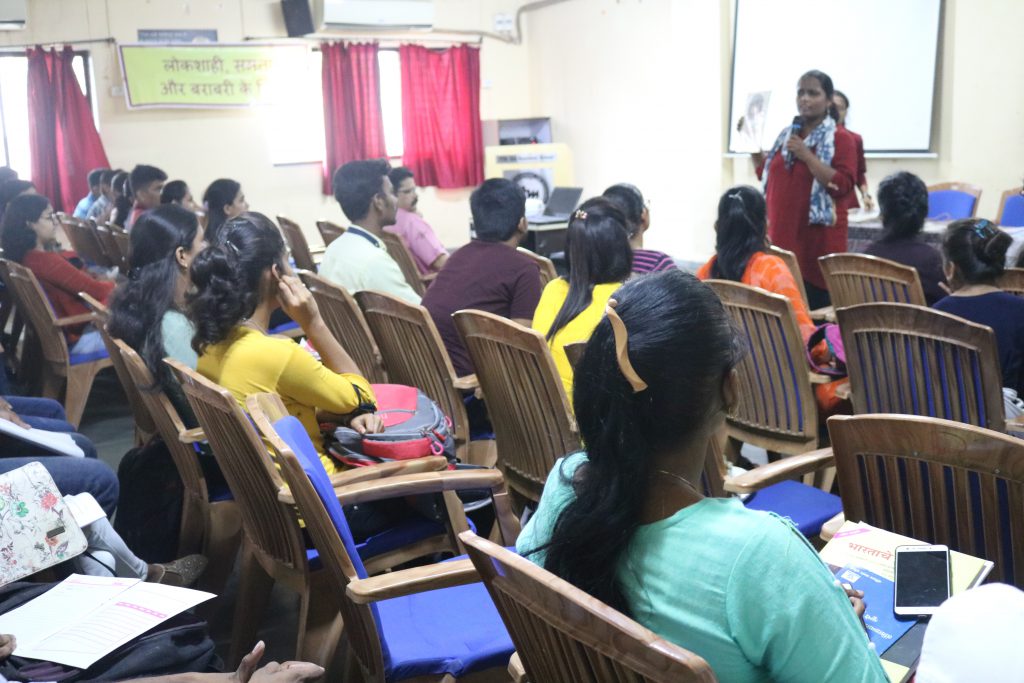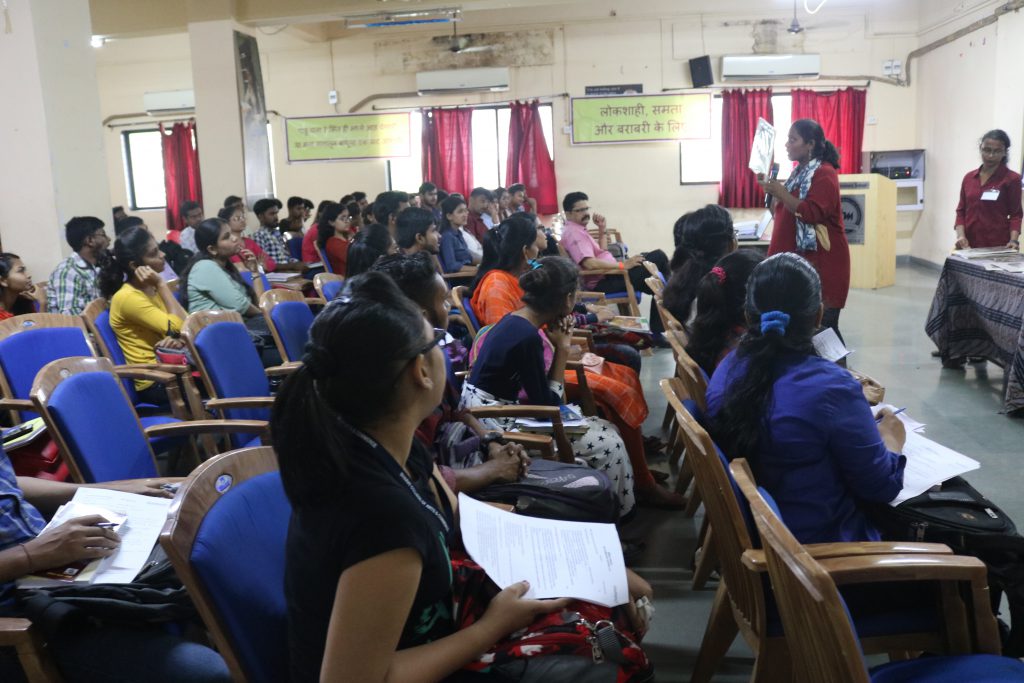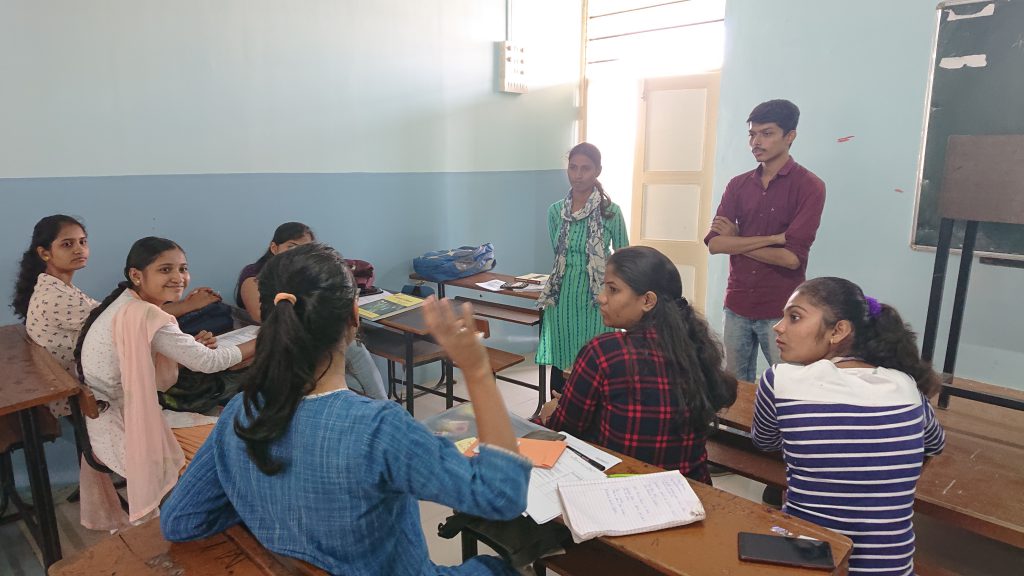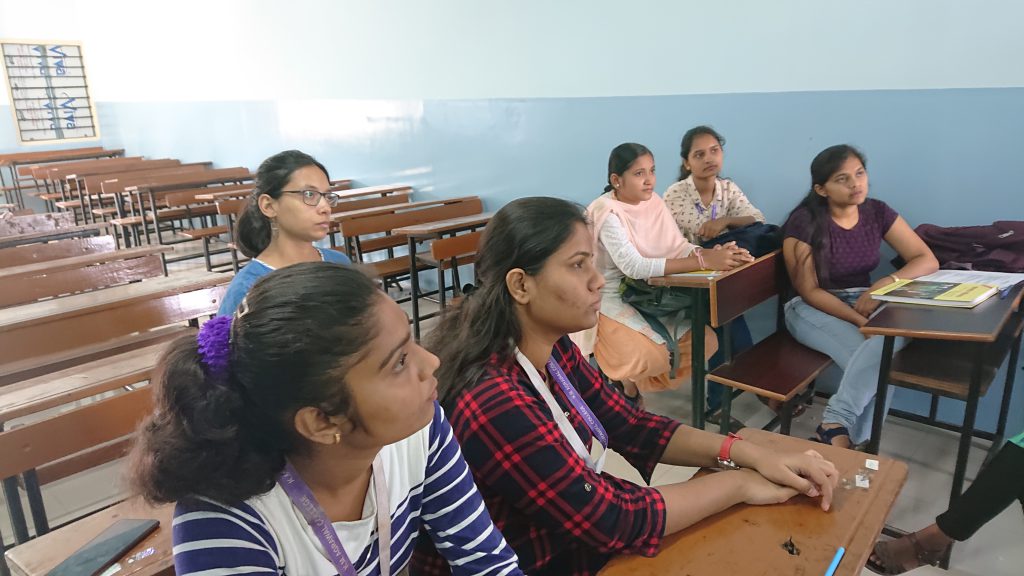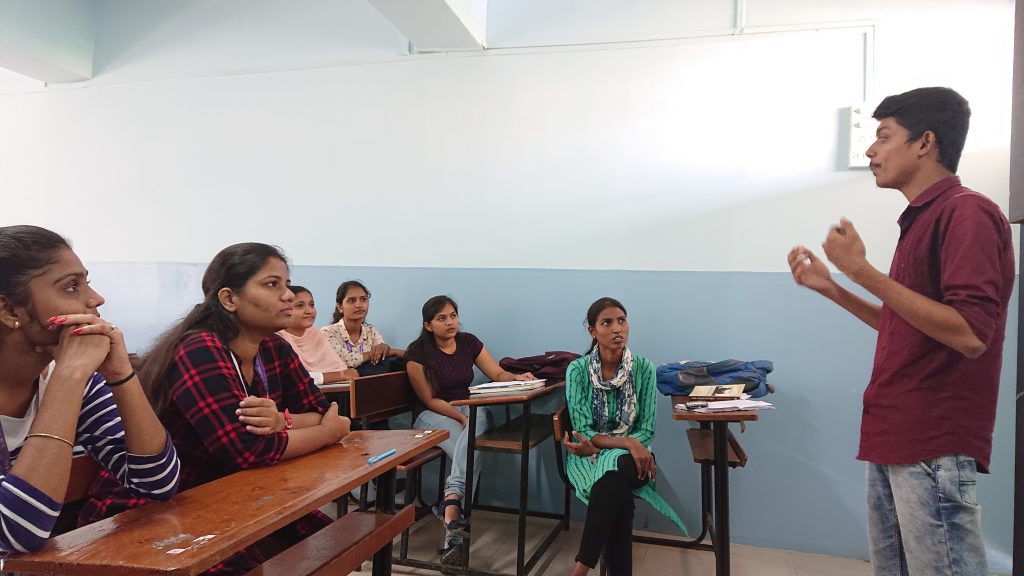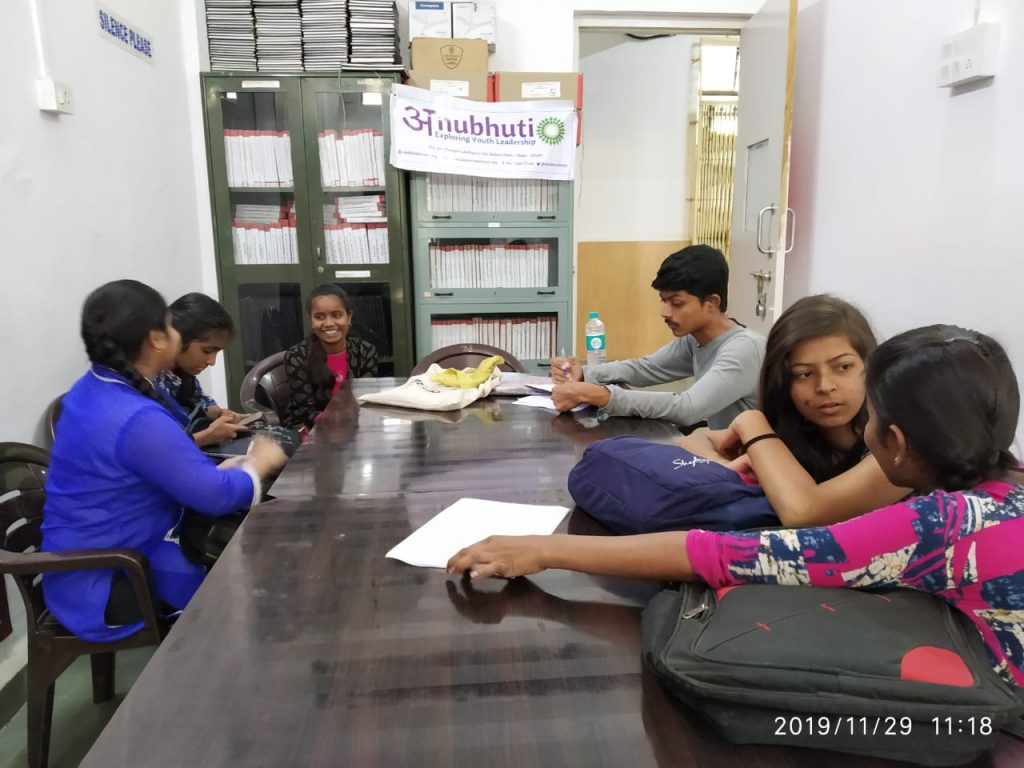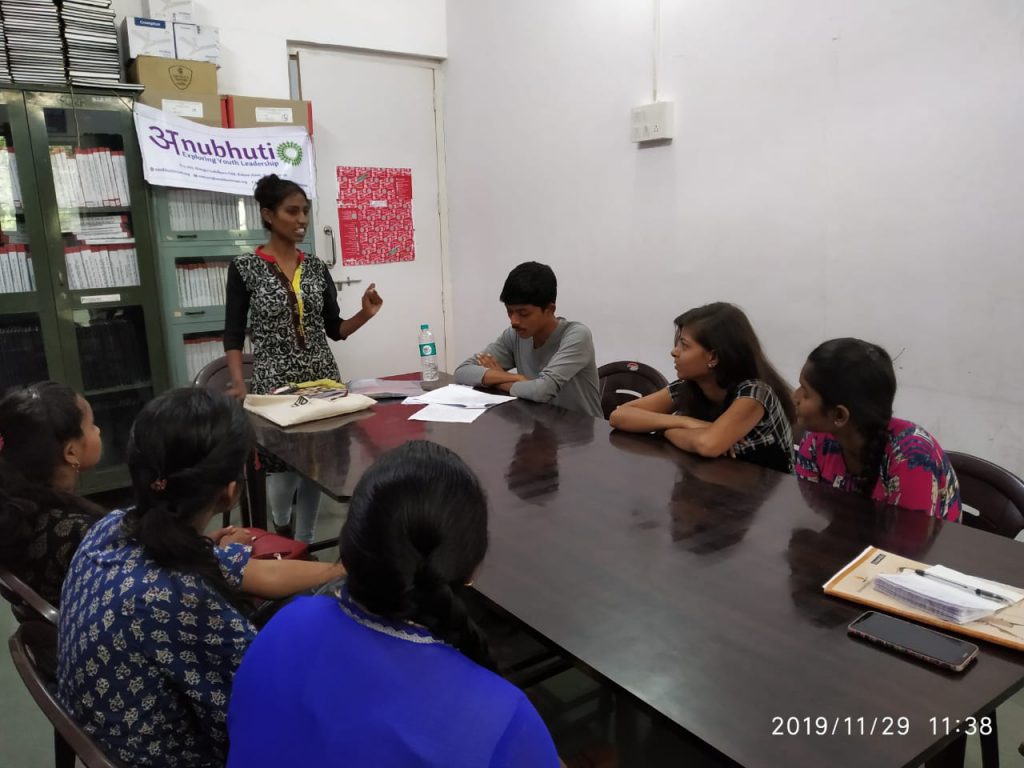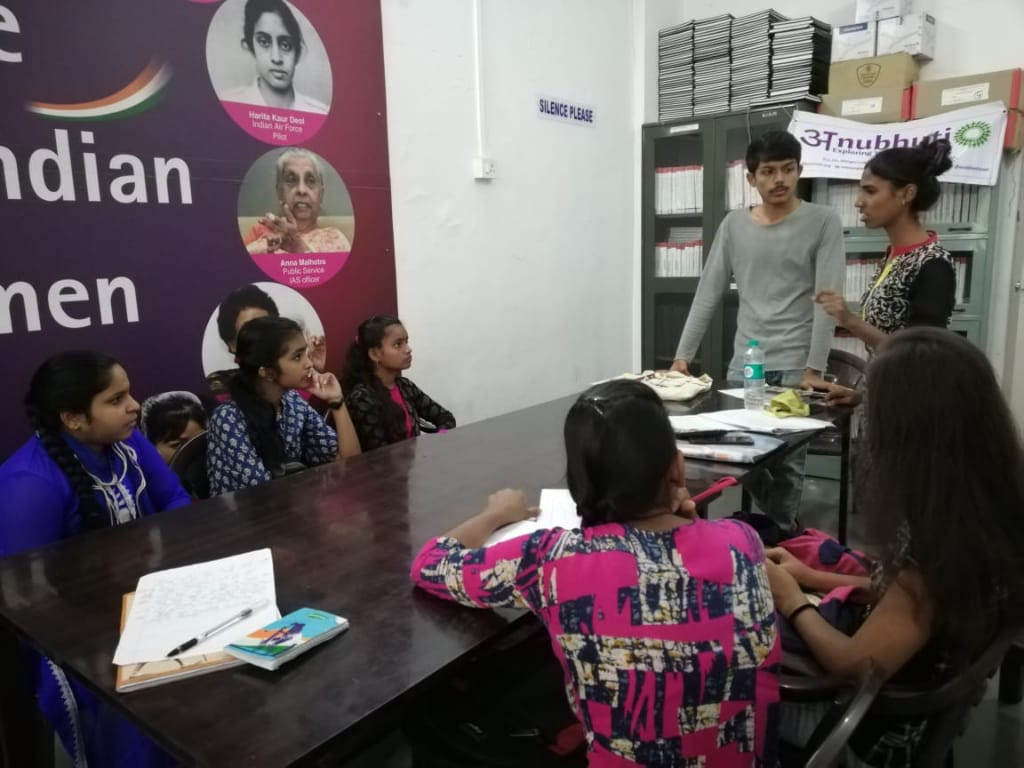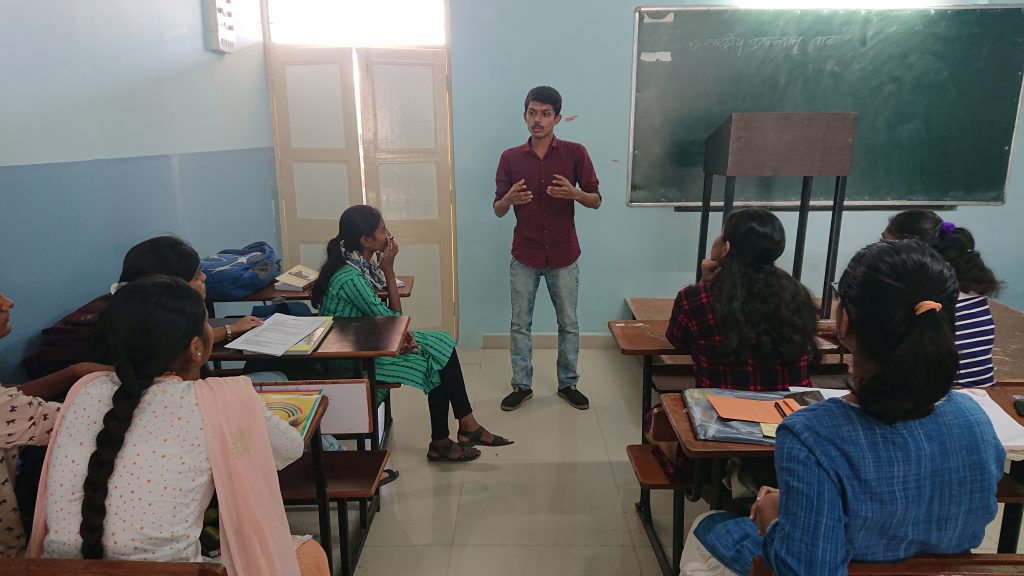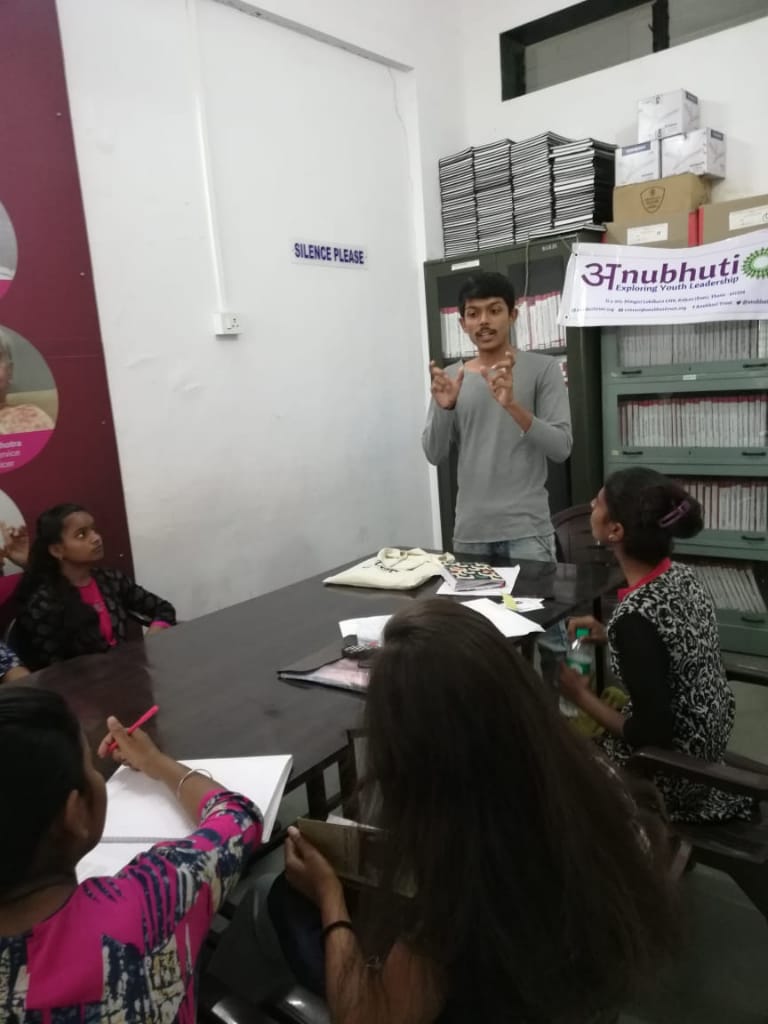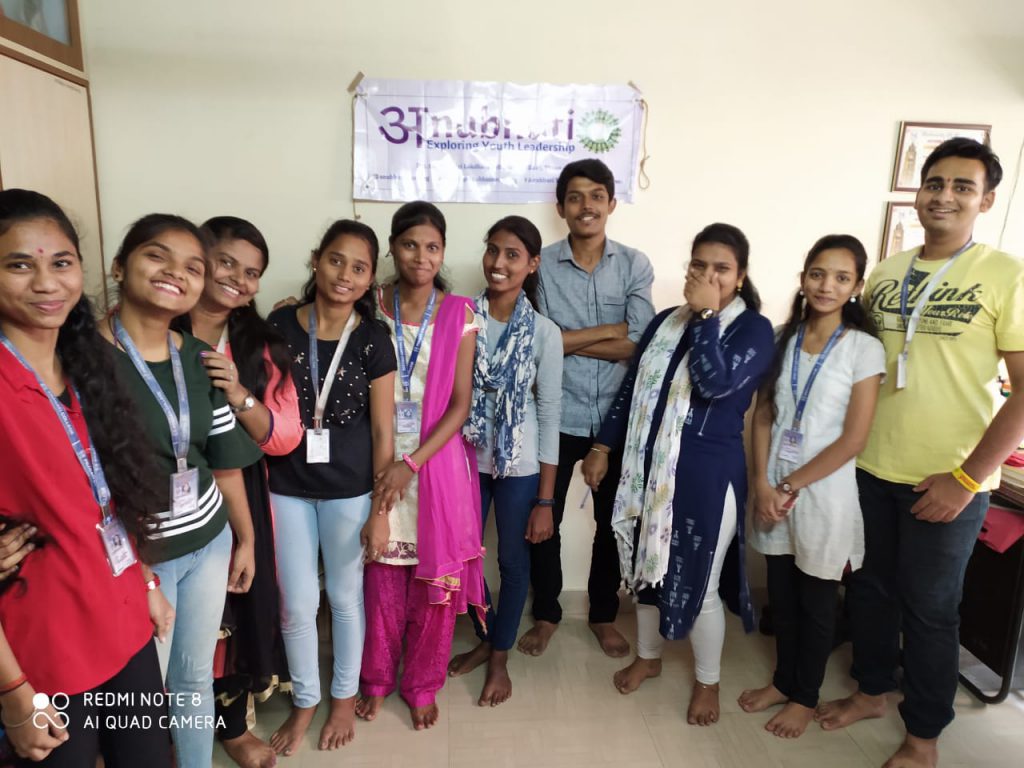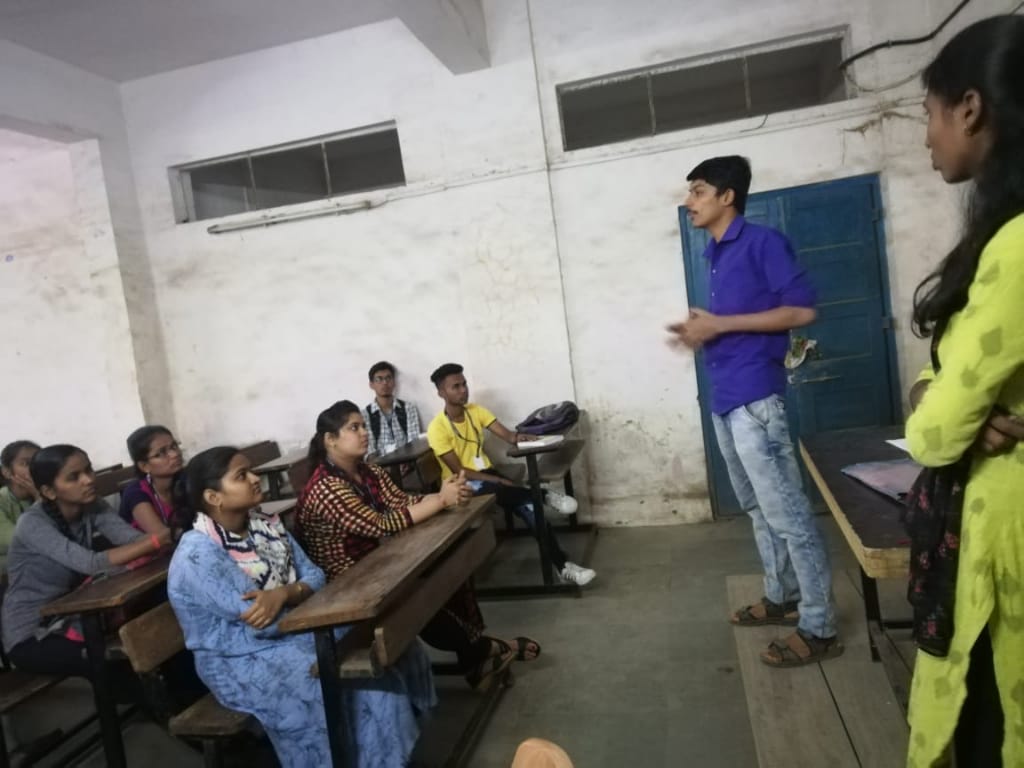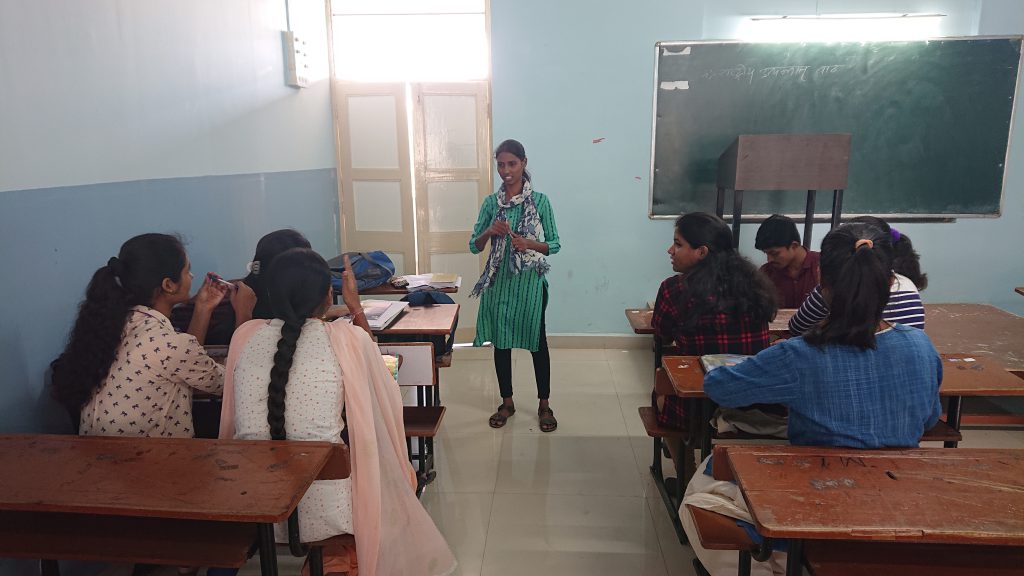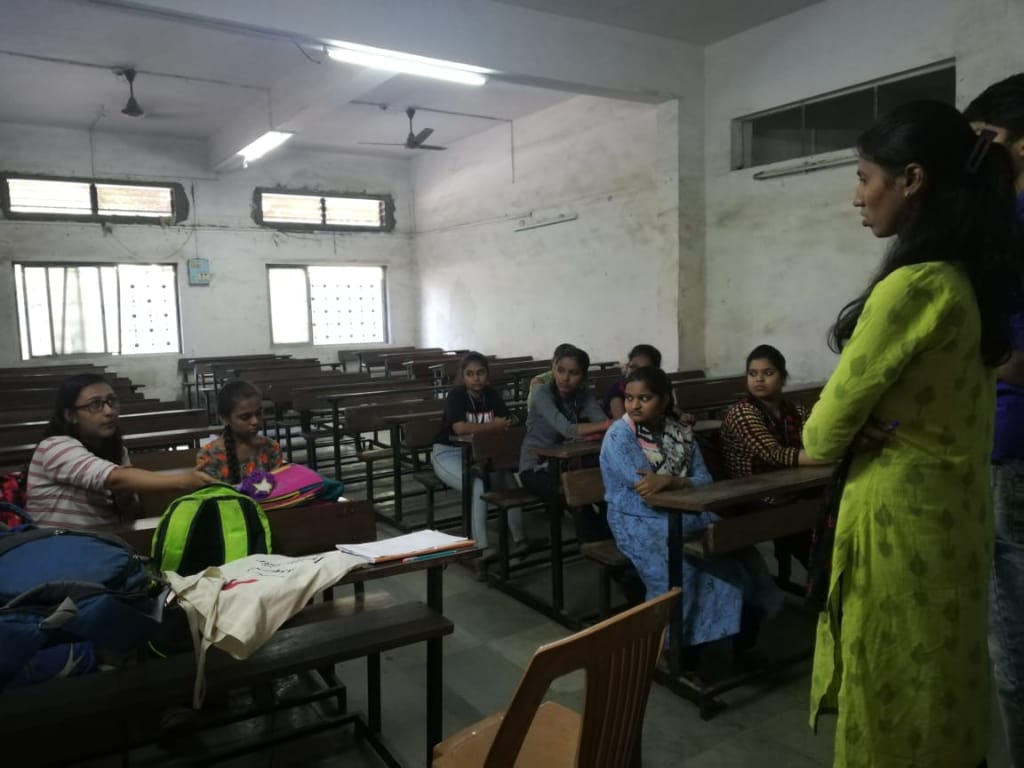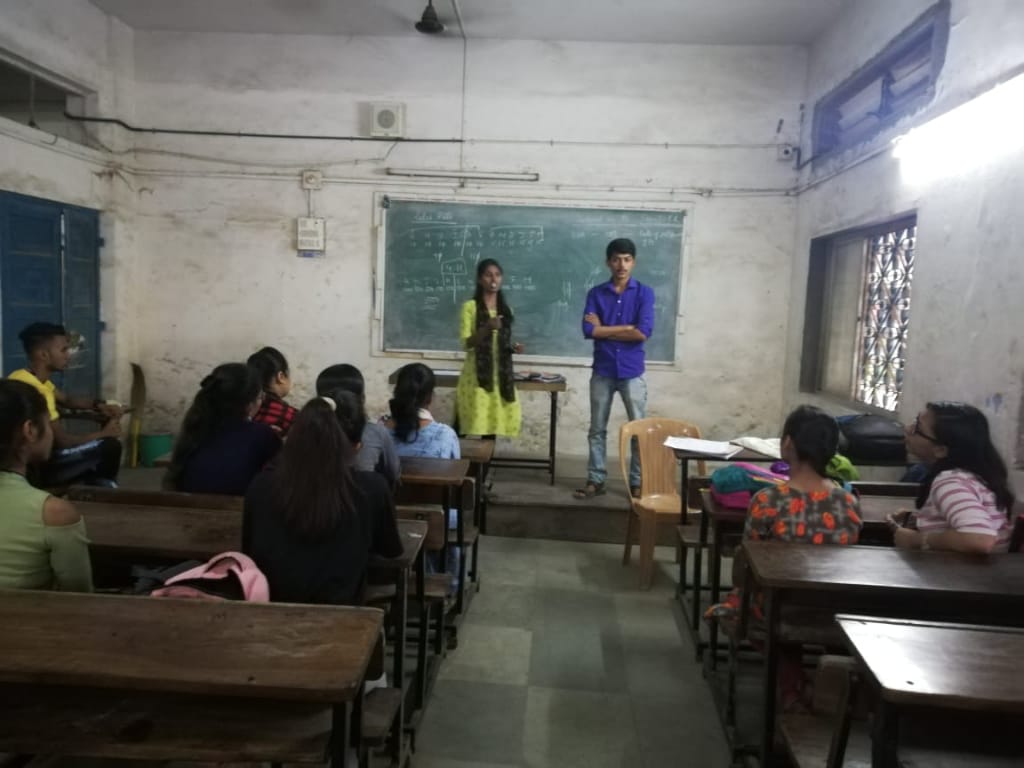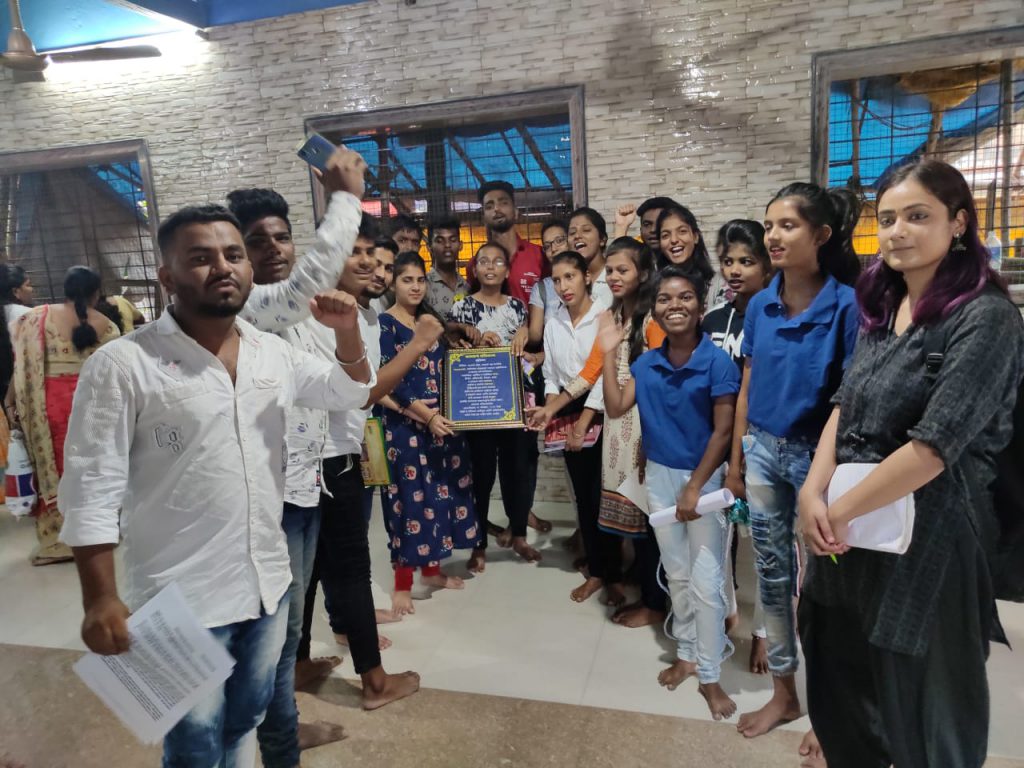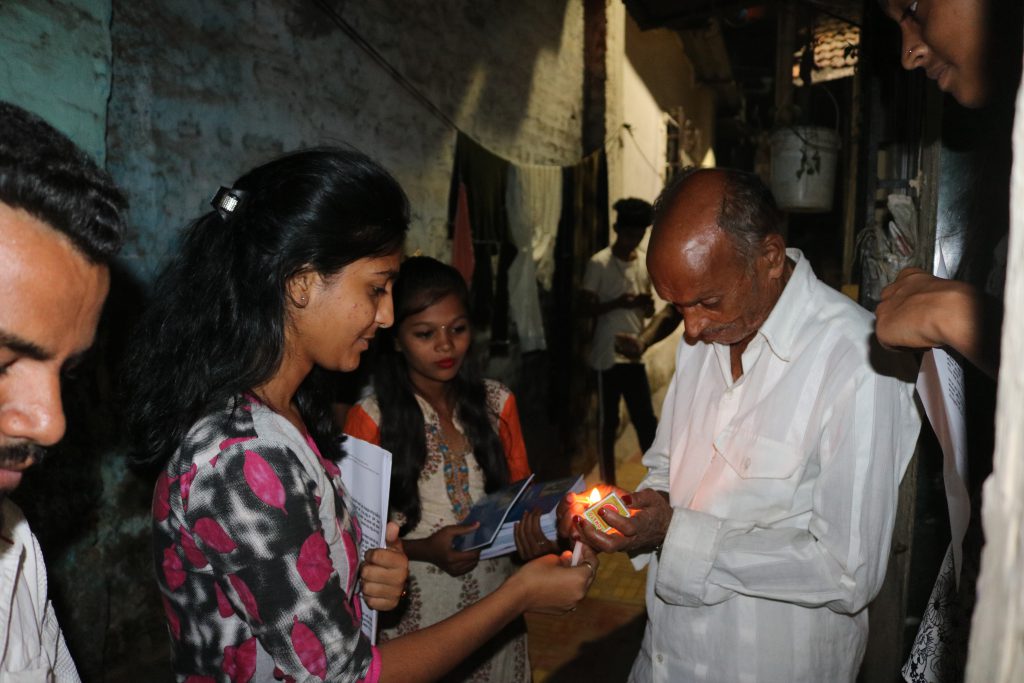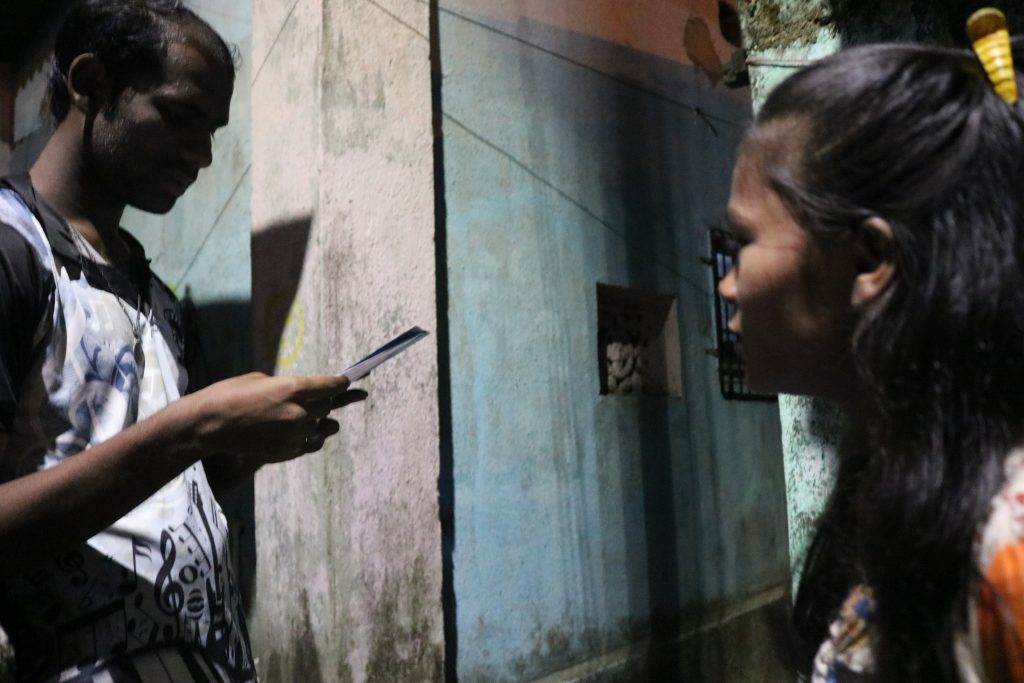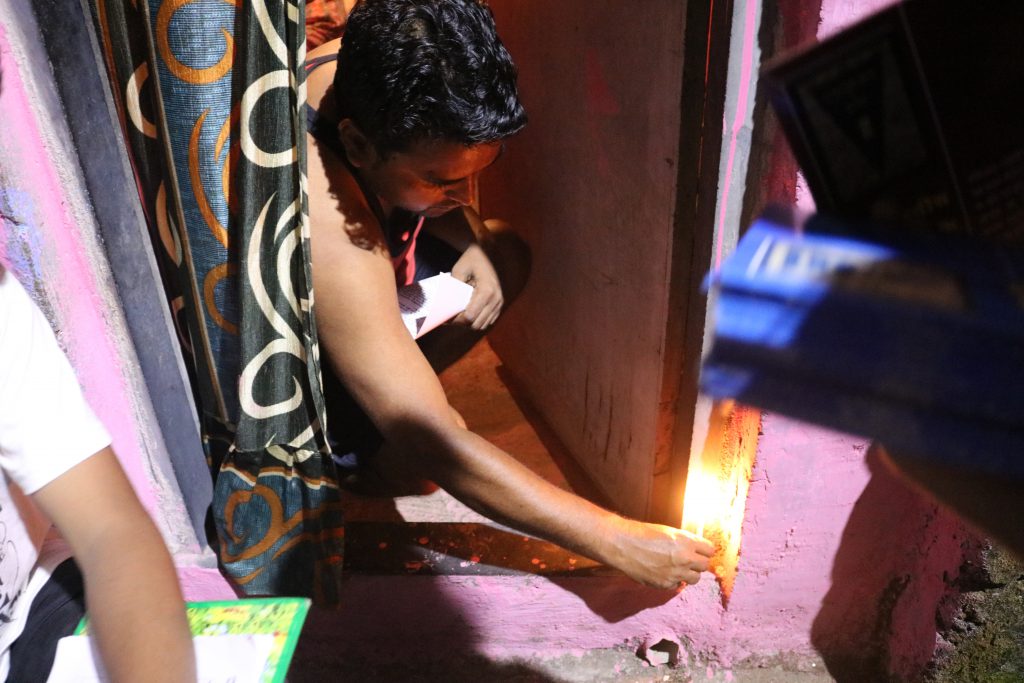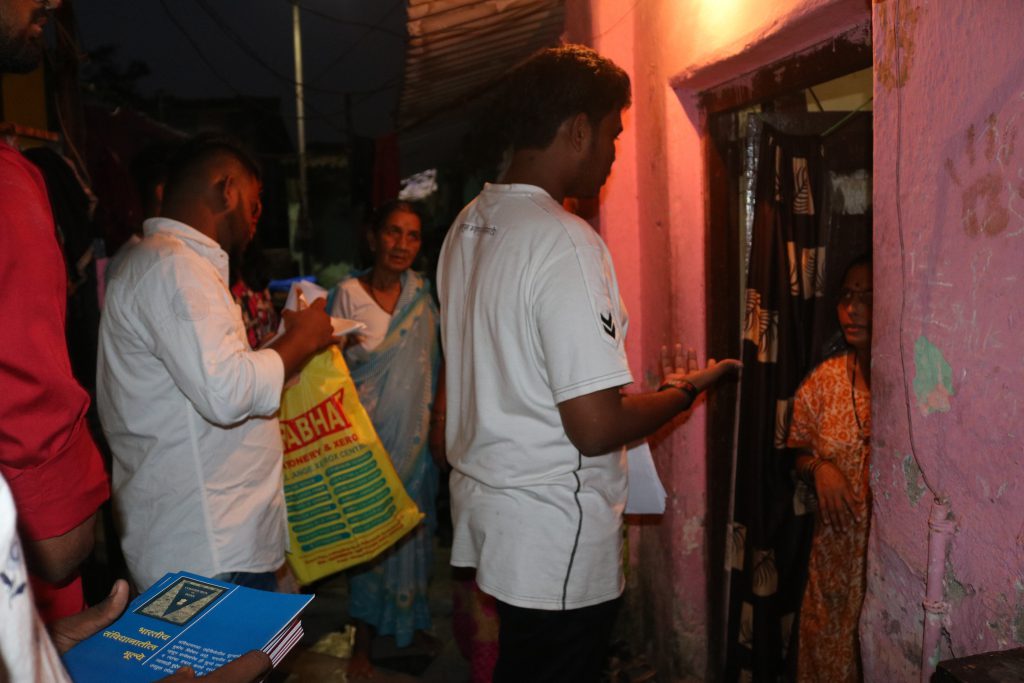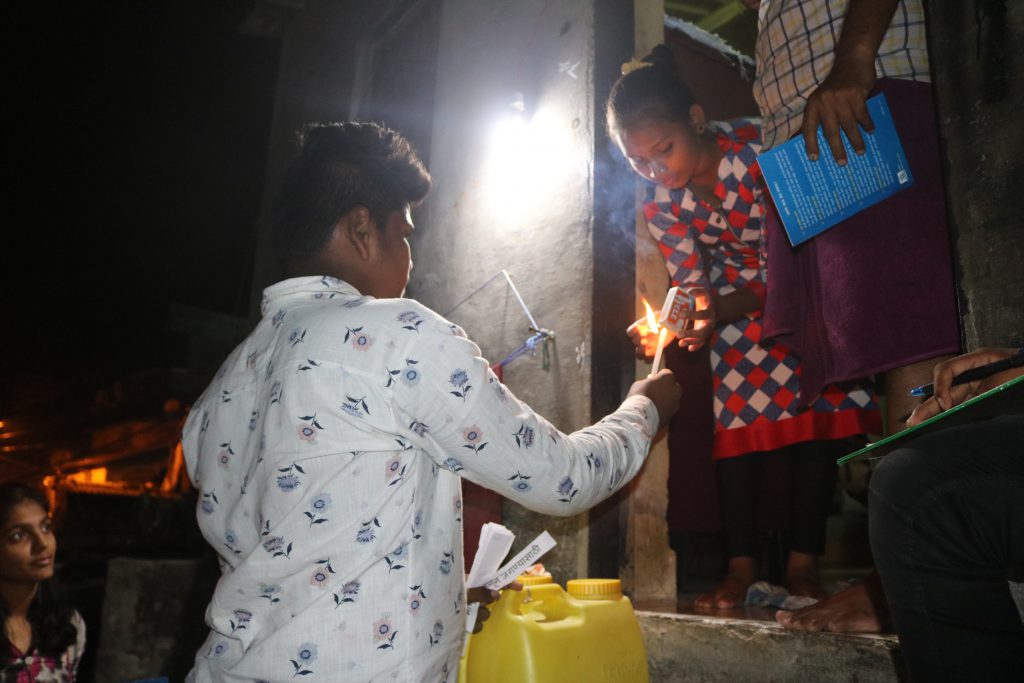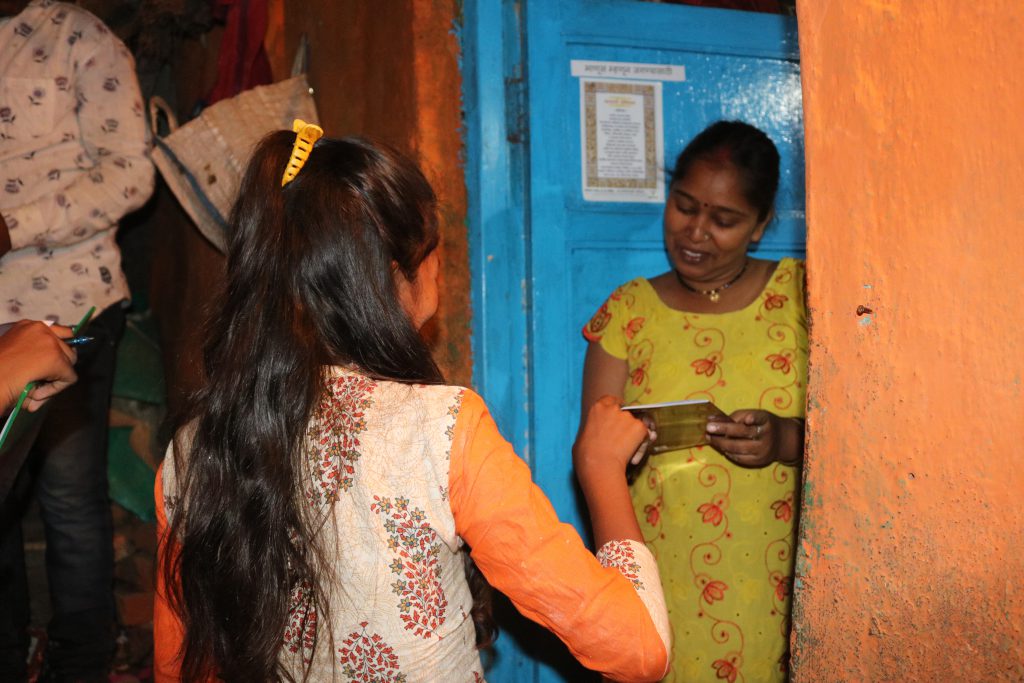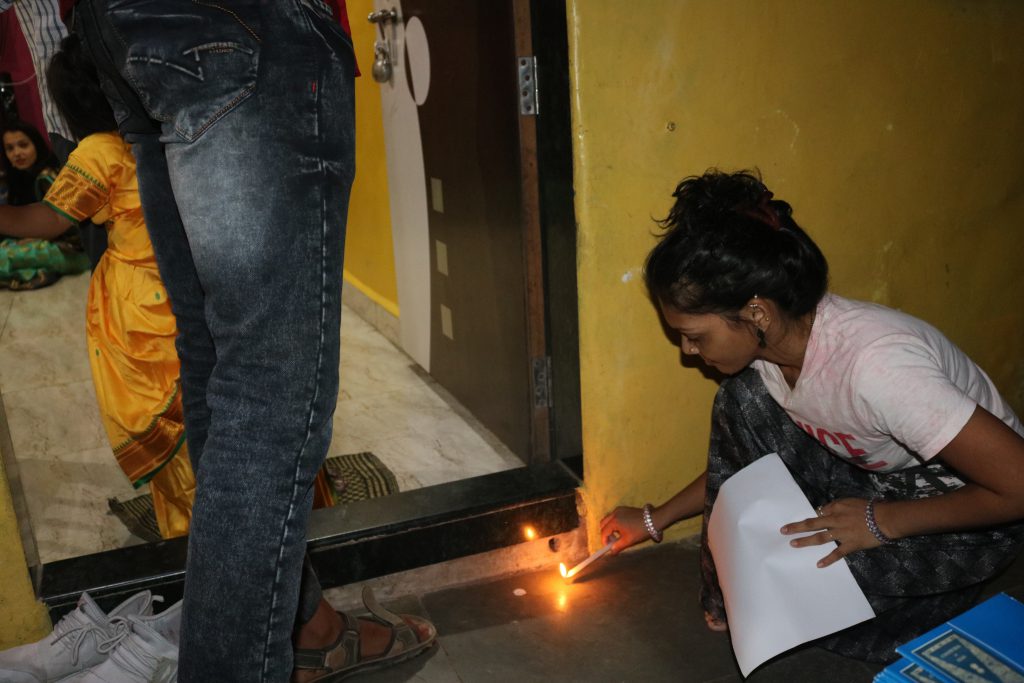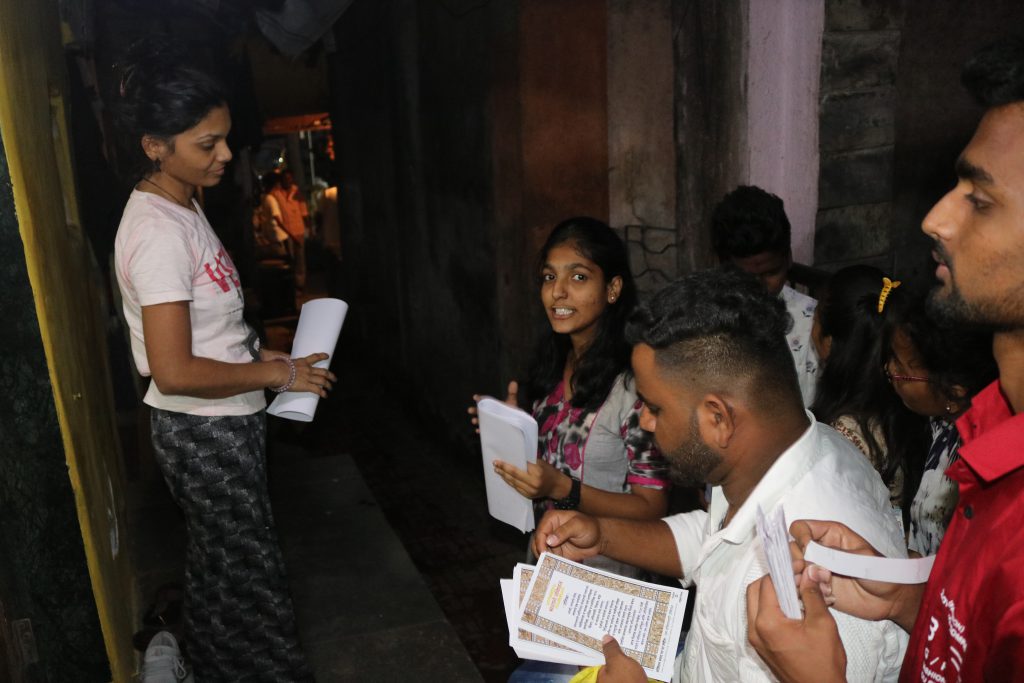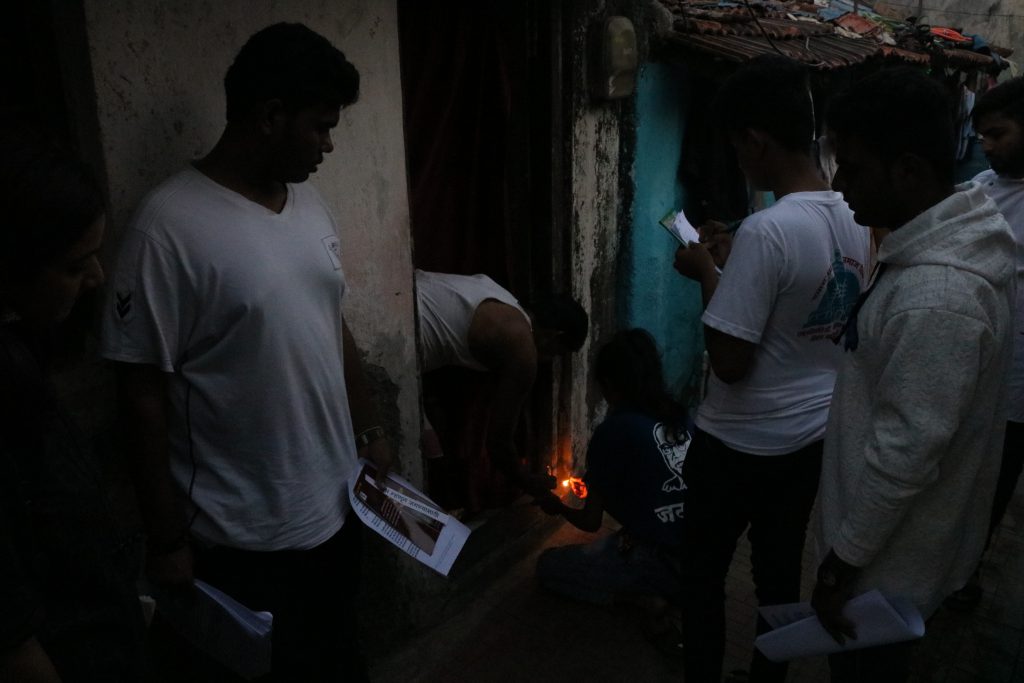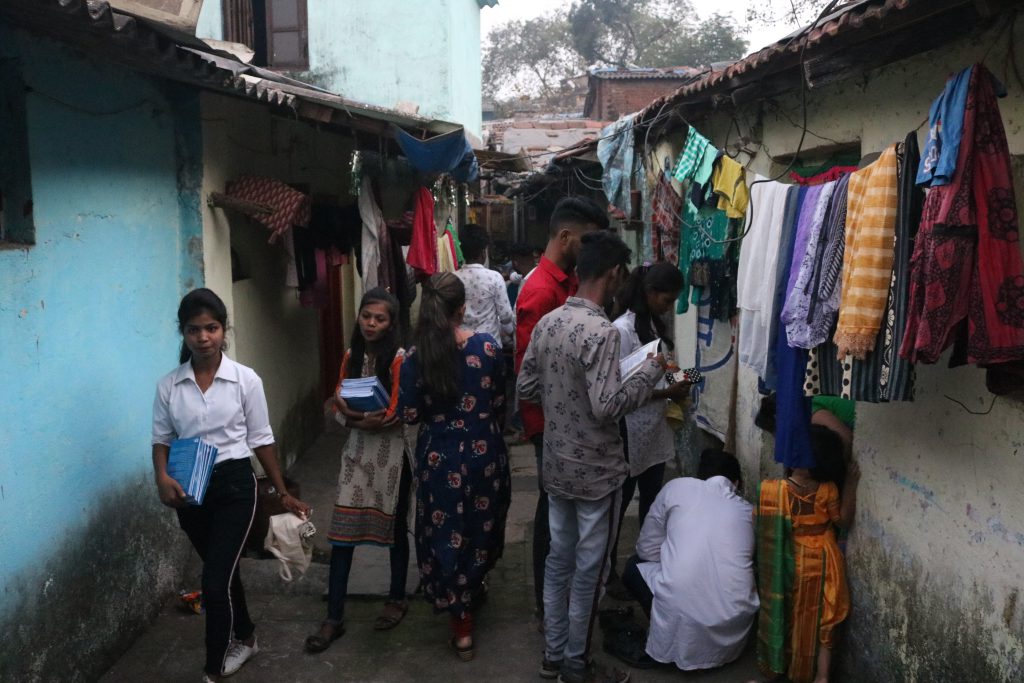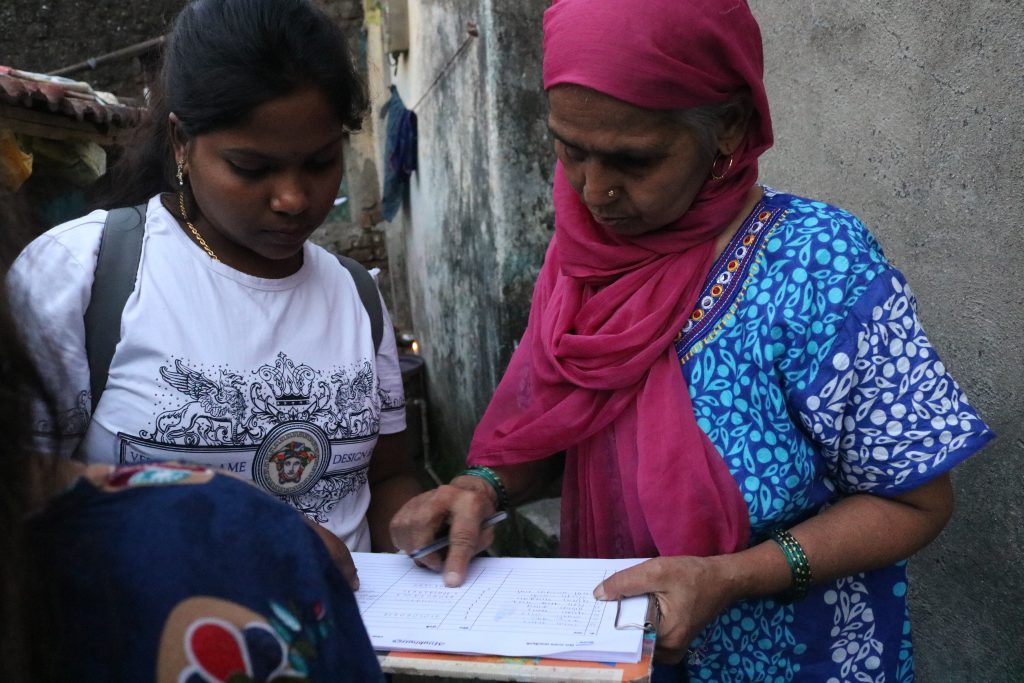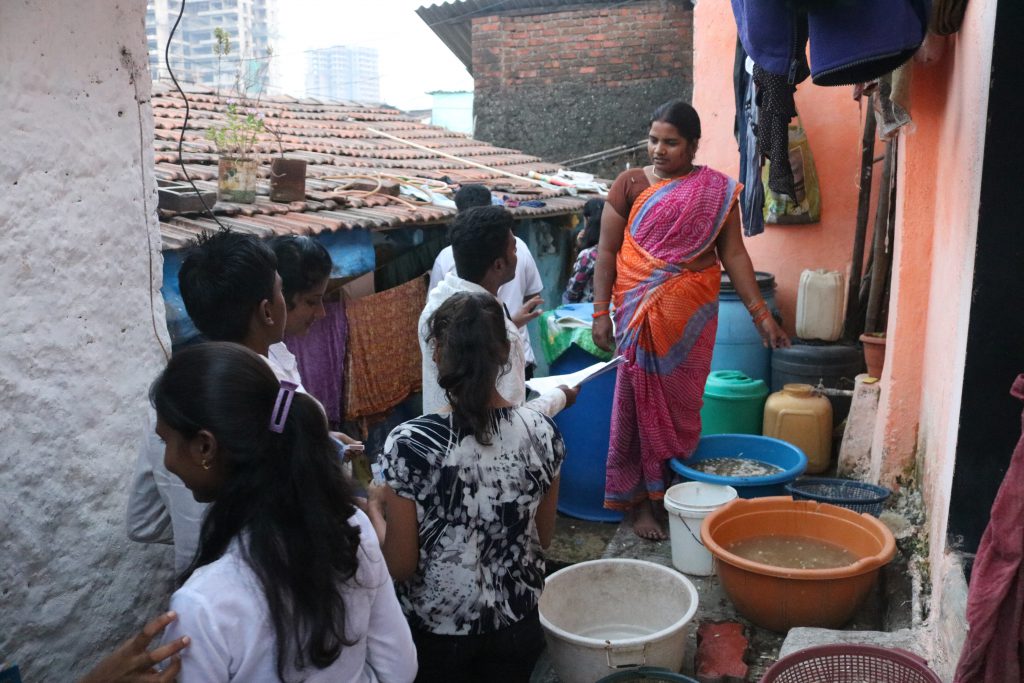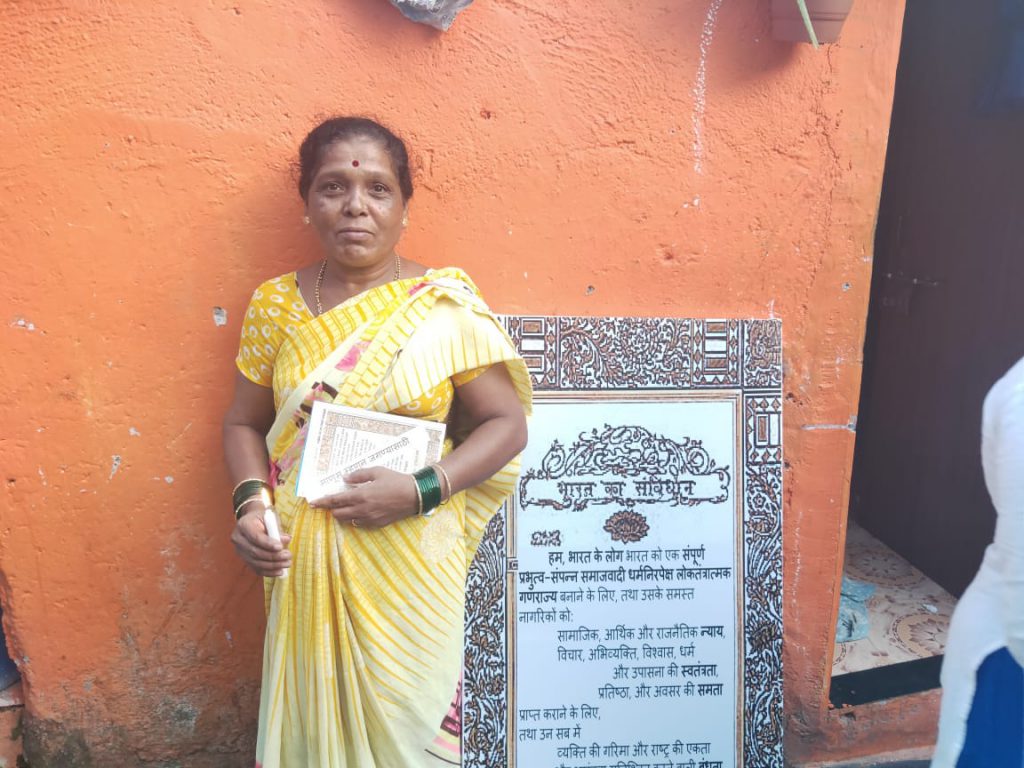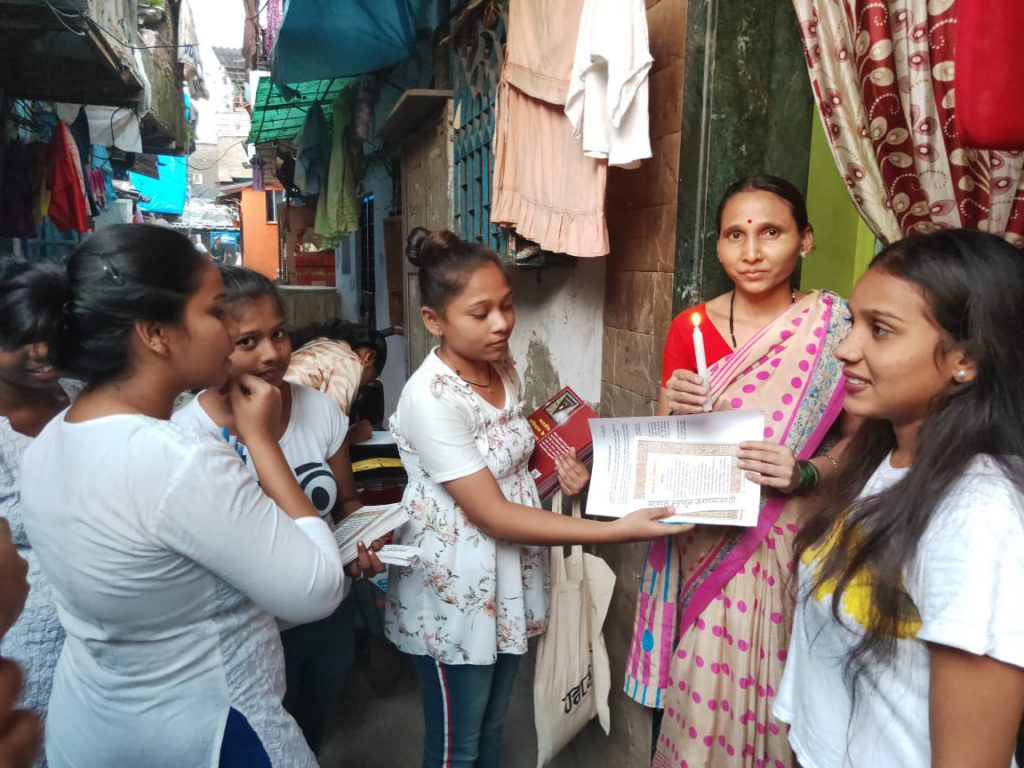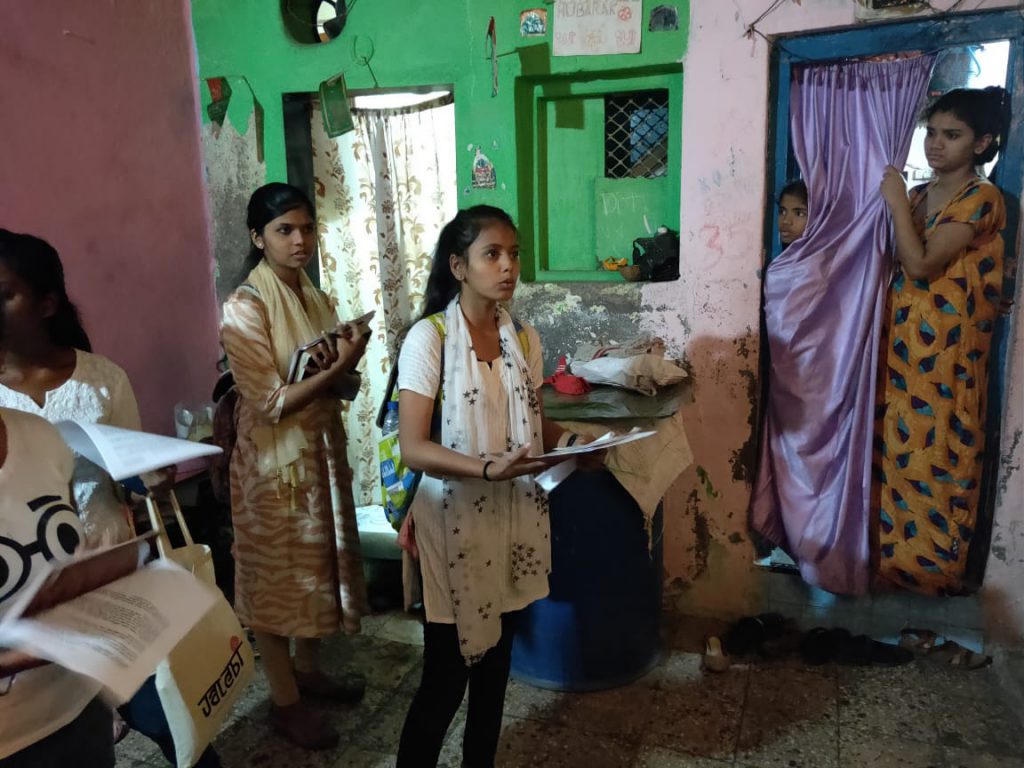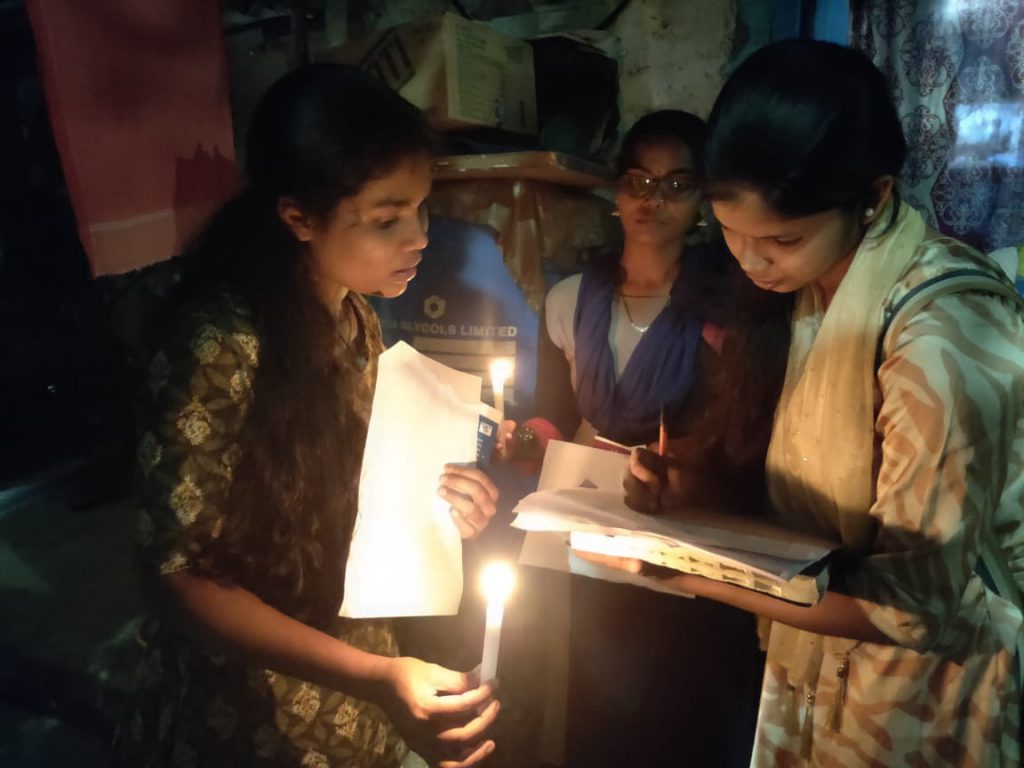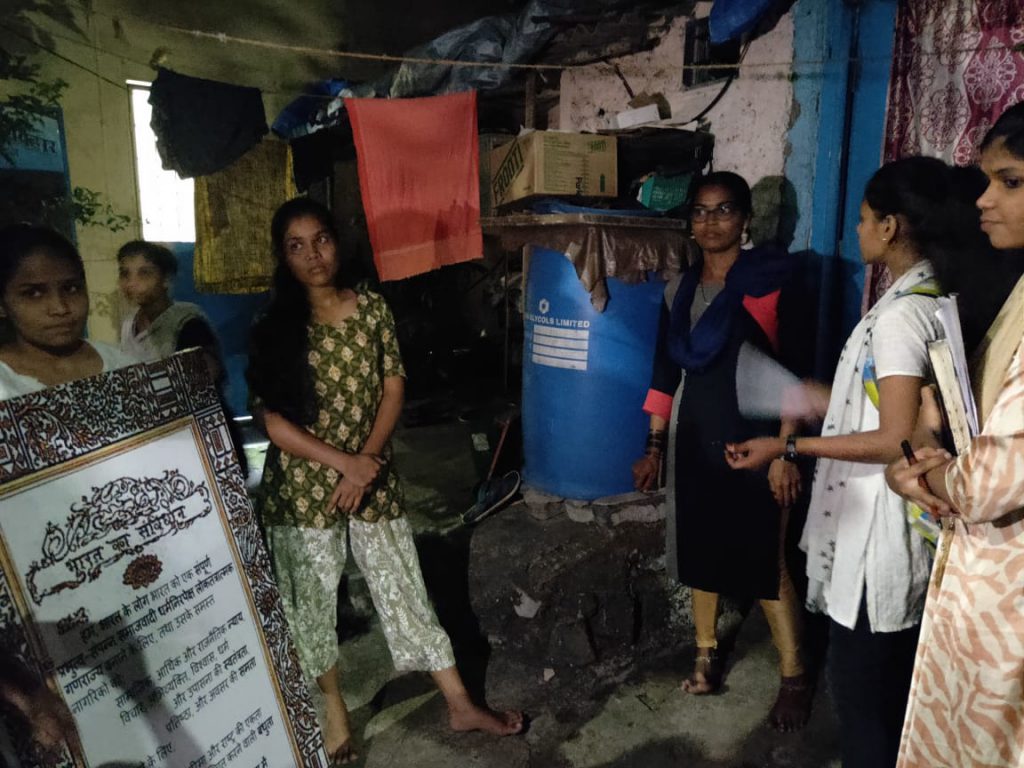Earlier this year, we started working with colleges spread across Dombivali to Karjat in Thane District on Mental Health Justice by providing trainings and carrying out data collection on the subject. This was a part of founder Deepa Pawar’s project as a GYAA Advocate 2019. We thus reached over 1000 culturally, socially, economically diverse youth and their teachers across 15 colleges. The response was amazing with many colleges and students coming back to say that they want to sign up for advanced sessions.
Thus, we moved onto the next phase where we decided to provide a more robust and in-depth understanding of the concept of Mental Health Justice by providing training on the values, principles and rights as laid down in the Indian Constitution, since we believe that Mental Health Justice cannot be attained without other parameters of social justice – which is ensured by the Constitution of India. The Goalkeepers platform supported this idea.
Please read on below for snapshots of these unique initiatives:
Constitutional Literacy is, in fact, imperative if youth are to develop into active, aware, sensitive citizens and leaders of the country. With this idea in mind, Anubhuti launched the “Constitution Literacy Inter-Collegiate Competitive Exam” on occassion of Indian Republic Day on 26th January last year. This was the second year of our flagship program where we increased the number of colleges from 8 to 11, and from few regions in Thane and Mumbai districts to Badlapur and Karjat in the interiors. The program this year added the unique component of Mental Health Justice whose base we at Anubhuti strongly feel is the Indian Constitution – unless fundamental rights as upheld by the Constitution are attained by the last person in the social hierarchy, we cannot ensure their mental health justice.
The entire program consists of students from different colleges registering for the exam; this year they were from the same colleges that we provided MH trainings throughout the year, and selected students from those colleges signed up for this exam as an advanced training. They are then given study material and constant guidance; Constitution experts set the question paper; registered students sit for the exam; papers are checked according to board exam rules; winners get cash prizes and most importantly, those interested sign up to join us as “Constitution Friends”.
115 students registered this year. We began with the first event on 24th October 2019 – Workshop on “Indian Constitution and Mental Health Justice”. We thank The SIA College, Dombivali (E) for being the venue and logistical partner for this event.
Advocate Darshan Ingole was the guest speaker who oriented the students on history, values, Preamble and importance of the Constitution for Indian democracy.
This was followed by a session by founder Deepa Pawar, who is leading this program as a Goalkeepers Youth Action Accelerator. She connected the constitutional framework to Mental Health Justice for diverse youth, especially of vulnerable communities. Social hierarchies and their effect on the mental health of diverse populations were discussed, along with how we can work against such injustice.
This was then followed up with focus group discussions in each of the 11 registered colleges with their students’ delegation – for more in-depth discussion on the Indian Constitution and how to study it. These entirely youth-led FGDs are currently ongoing. Participants from last year’s exam and young members of Anubhuti team are leading the discussions. It has been a pleasure interacting with each college delegation.
At this stage, they are deep into studying for the exam and they come ready with their questions such as – what is the best strategy to prepare, how to study history of Indian Constitution, difference between Fundamental Rights and Responsibilities, how to navigate the legal language which is sometimes difficult to understand, which parts to concentrate more on, etc.
The registered students are then also being oriented the code of conduct for exam, further opportunities even after the exam process – such as signing up for being ‘Constitution Friends’.
Responses of students to why they wish to study the Indian constitution are highly encouraging –
“It will prepare us to be better citizens”
“We need to know where our country’s laws and policies come from to follow them and use them”
“It is the Constitution that has given us women equal rights to work, equal wages, maternity leave and so much else that would have taken us years to achieve otherwise in a deeply unequal society like ours”
“We have heard of our fundamental rights but if we don’t know about them how will we attain them for ourselves or others”
“We only hear about democracy, political system and elections, but we don’t really know what they mean”
“Youth are usually not taken seriously – I want to study the Constitution because it gives me the right to express as a youth and so that I know what I’m talking about when I want to meaningfully participate in political process”
“The Constitution will help us understand how to organize for social change.”
“As believers of humanism – which we all are- we cannot possible say we are disconnected from the Indian Constitution. It gives us the values of humanity and therefore we must study it.”
It was really encouraging to see that the country’s youth are eager to study and prepare themselves to democratically engage with the nation’s socio-political processes.
Last but not the least, Constitution Literacy was taken to the communities by few selected trained youth leaders:
On 26th November on occassion of Indian National Constitution Day at the communities of Netivali, Kalyan (E) and at Bamanwada, Vile Parle (E) in Thane and Mumbai districts of Maharashtra respectively. This is the day that the Indian Constitution was adopted by the Constituent Assembly in 1949, laying the foundations of the biggest democracy in the world.
It was a unique ‘Door-to-door Constitution Conversations’ campaign to take the Indian constitution’s fundamental essence and values to every house.
The campaign consisted of an explanation about the Constitution, distribution of Preamble stickers and booklets about constitutional values, and an activity of lighting candles of ‘Humanity’ that spread from house to house – illuminating the entire area with the light of humanism which is the base of the Indian Constitution.
The fundamental rights and idea of social justice contained in the Constitution was one of the main points of discussion – which we at Anubhuti feel are fundamental to Mental Health justice especially of vulnerable populations.

